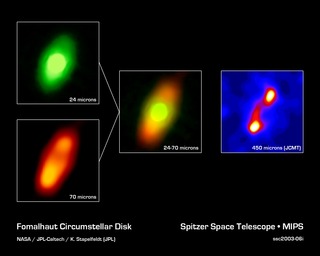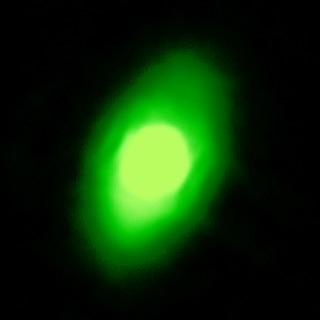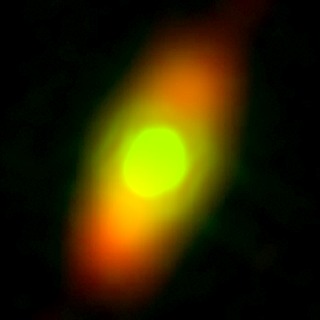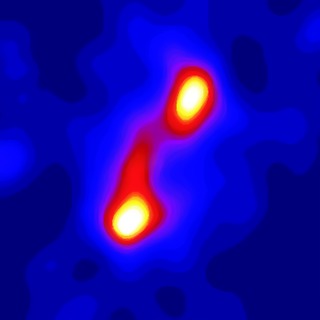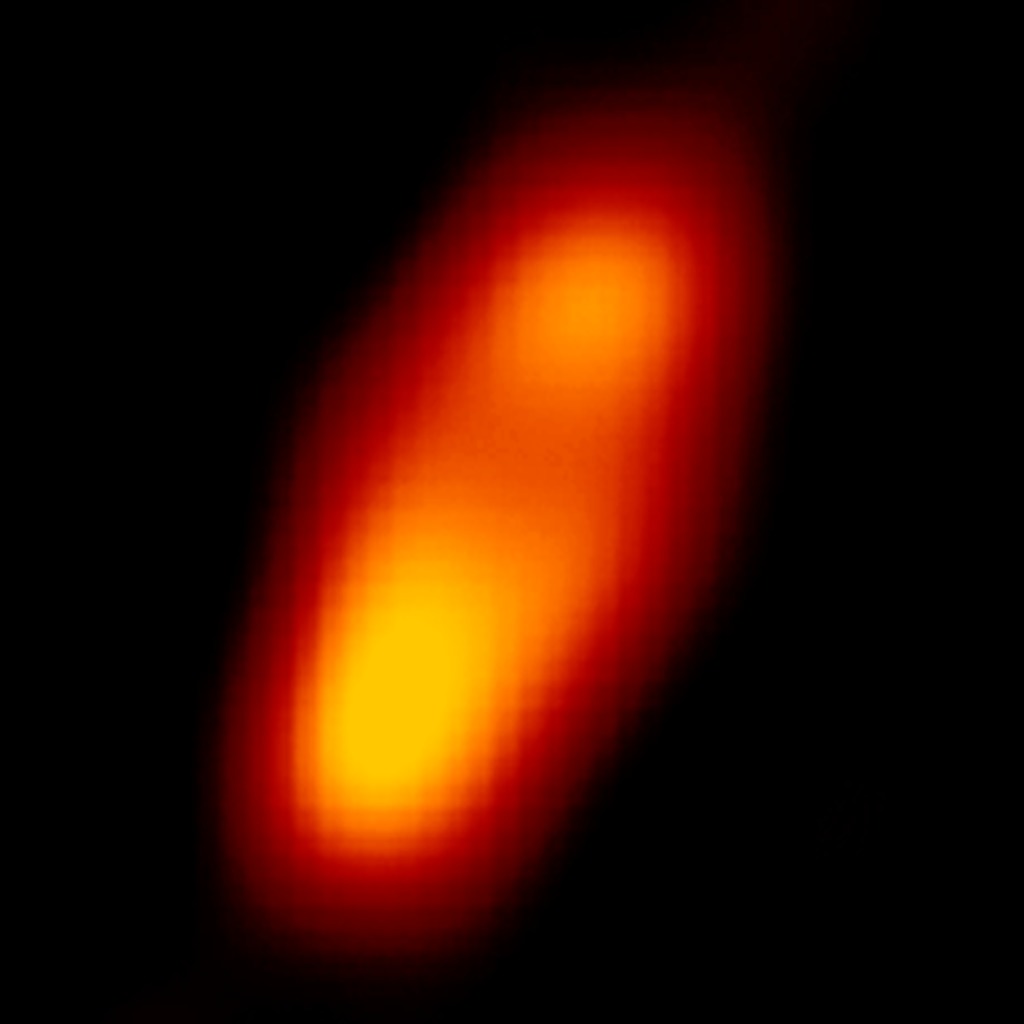
Credit: NASA/JPL-Caltech/K. Stapelfeldt (JPL)
Observation • December 18th, 2003 • ssc2003-06i2
ssc2003-06i2
The NASA Spitzer Space Telescope has obtained the first infrared images of the dust disc surrounding Fomalhaut, the 18th brightest star in the sky. Planets are believed to form from such a flattened disc-like cloud of gas and dust orbiting a star very early in its life. The Spitzer telescope was designed in part to study these circumstellar discs, where the dust particles are so cold that they radiate primarily at infrared wavelengths. Located in the constellation Piscis Austrinus, the parent star and its putative planetary system are found at a distance of 25 light-years.
Twenty years ago, the Infrared Astronomical Satellite, the first orbiting infrared telescope, detected much more infrared radiation coming from Fomalhaut than was expected for a normal star of this type. The dust is presumed to be debris left over from the formation of a planetary system. However, the satellite did not have adequate spatial resolution to image the dust directly. Subsequent measurements with sub-millimeter radio telescopes suggested that Fomalhaut is surrounded by a huge dust ring 370 astronomical units (an astronomical unit is the average distance between the Sun and Earth), or 34 billion miles (56 billion kilometers) in diameter. This corresponds to a size of nearly five times larger than our own solar system. Moreover, the sub-millimeter observations (far right image) revealed that the ring was inclined 20 degrees from an edge-on view.
The new images obtained with the multiband imaging photometer onboard Spitzer confirm this general picture, while revealing important new details of Fomalhaut's circumstellar dust. This 70-micron image clearly shows an asymmetry in the dust distribution, with the southern lobe one-third brighter than the northern. Such an unbalanced structure could be produced by a collision between moderate-sized asteroids in the recent past (releasing a localized cloud of dust) or by the steering effects of ring particles by the gravitational influence of an unseen planet.
About the Object
- Name
- Fomalhaut • alpha PsA • HD 216956
- Type
- Star > Circumstellar Material > Disk > Debris
- Distance
- 25 Light Years
Color Mapping
| Band | Wavelength | Telescope |
| Infrared | 24.0 µm | Spitzer MIPS |
| Infrared | 70.0 µm | Spitzer MIPS |
